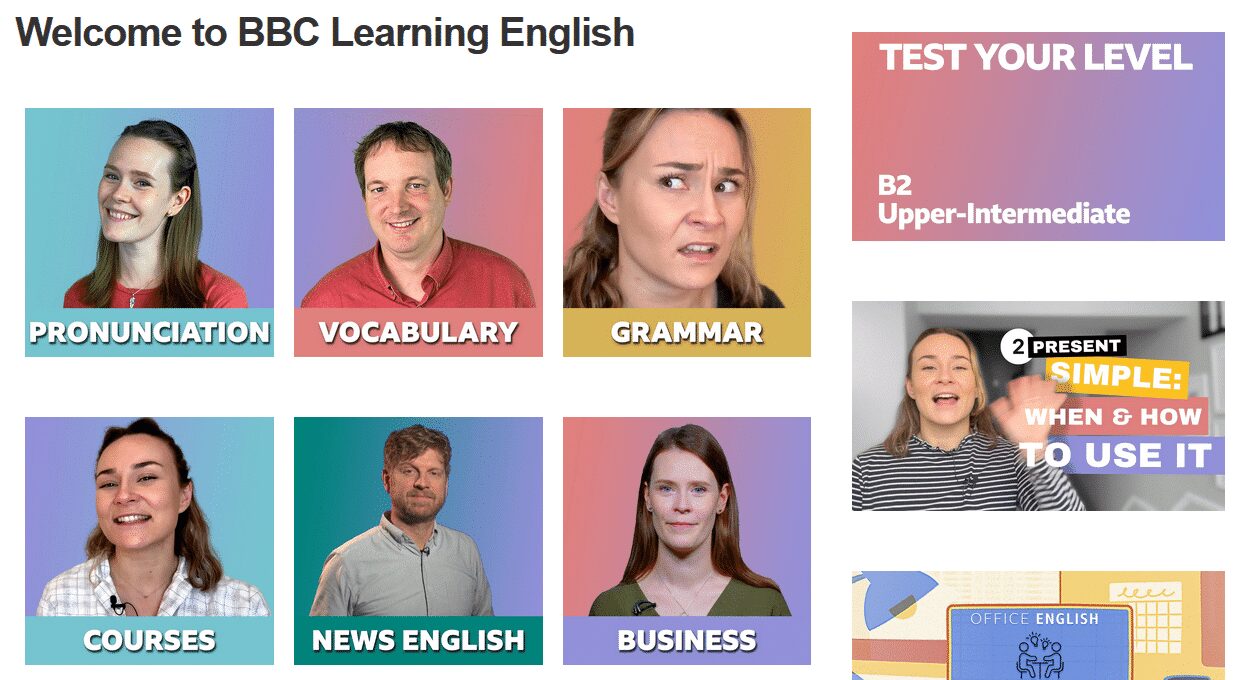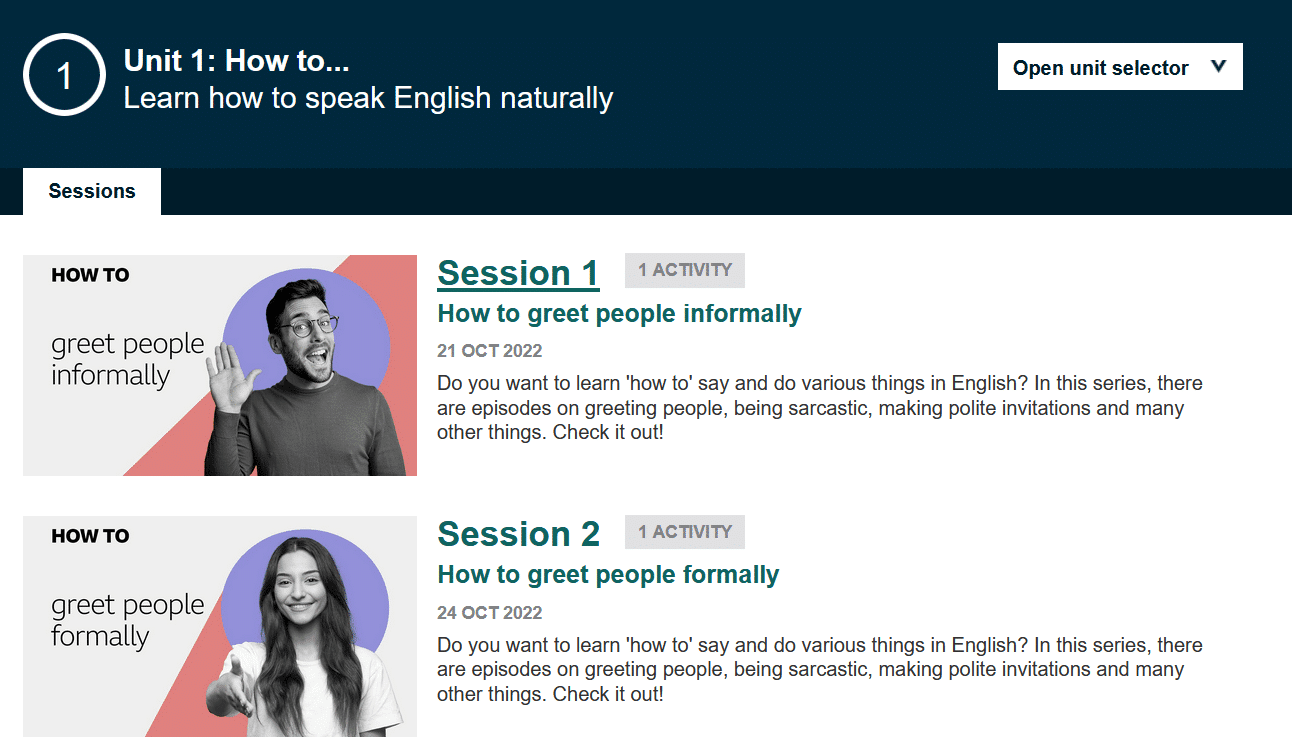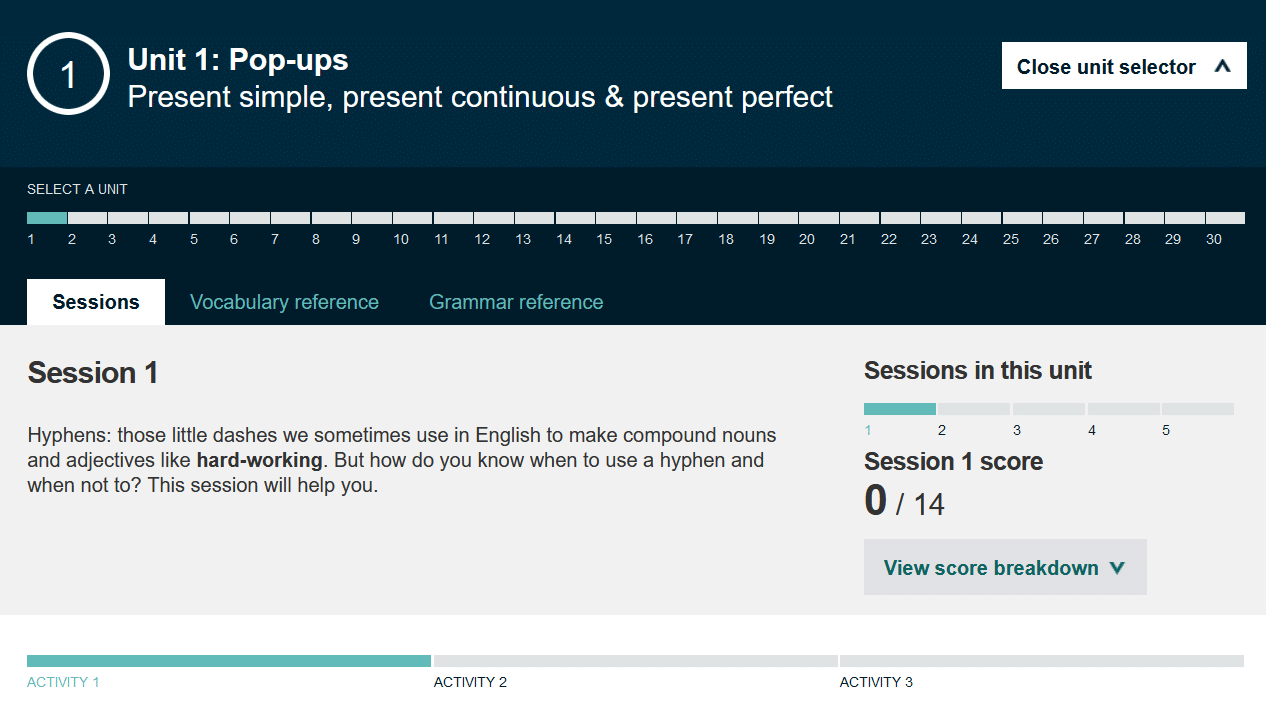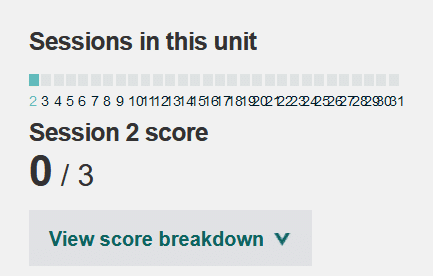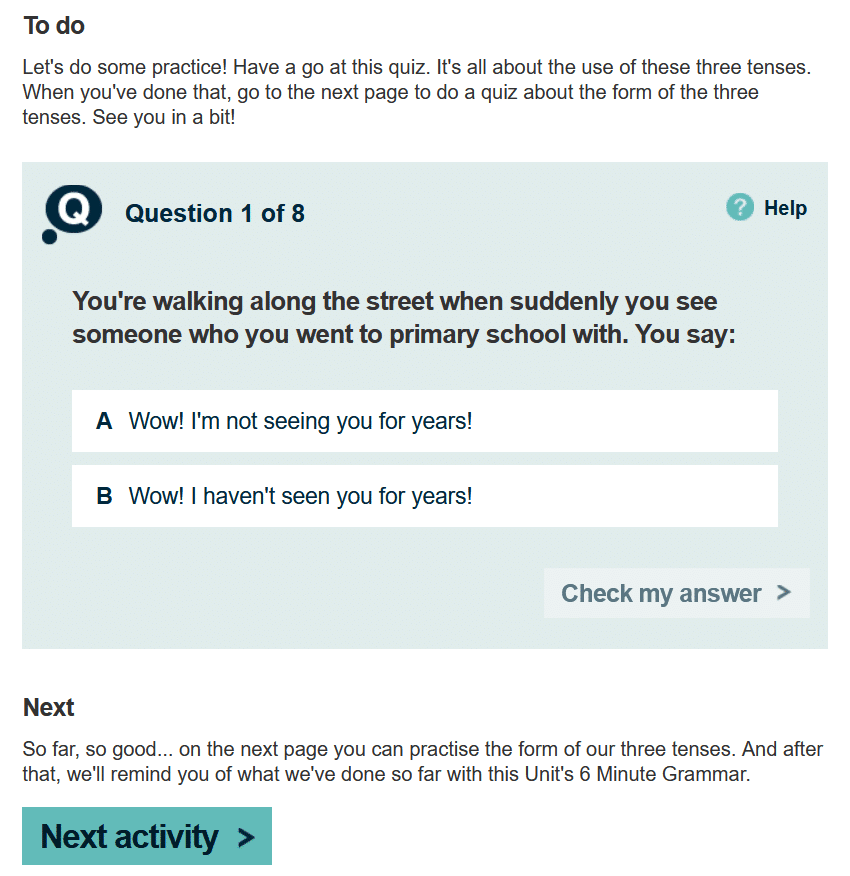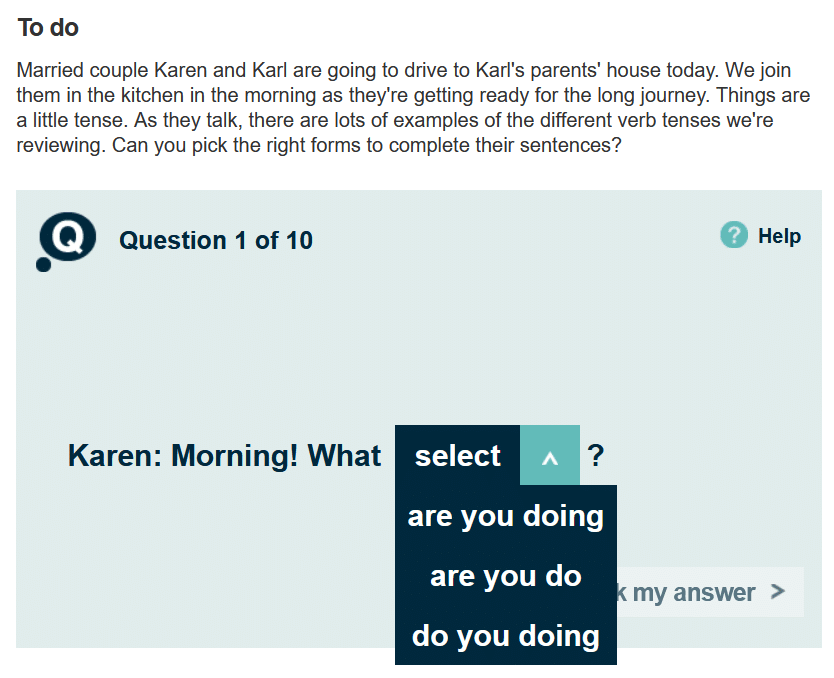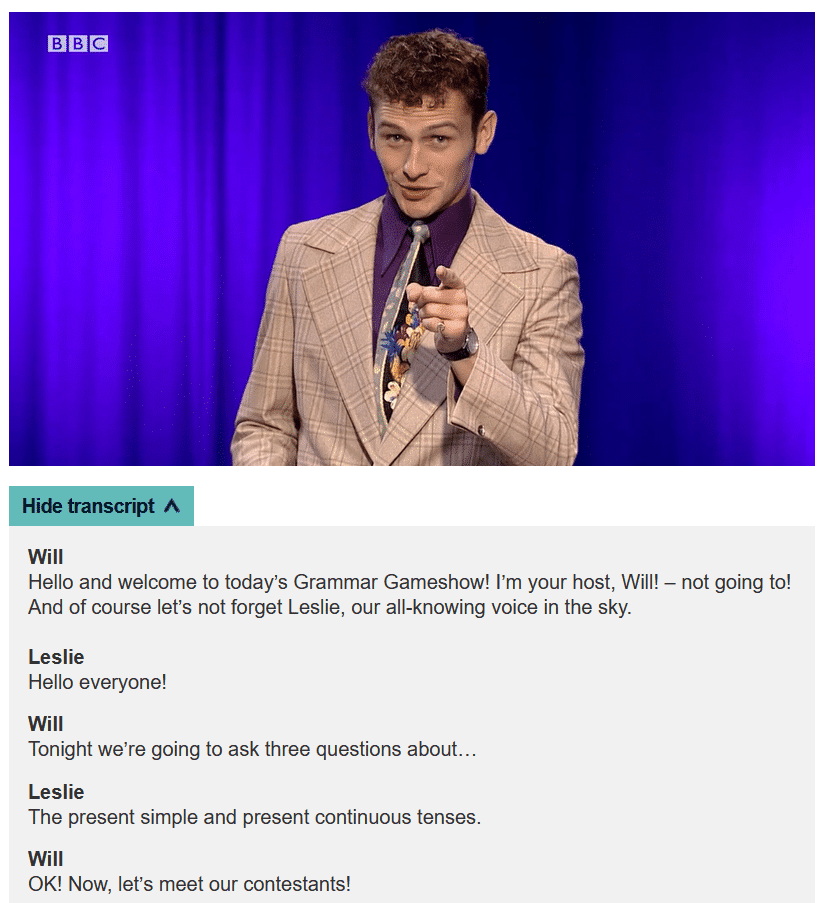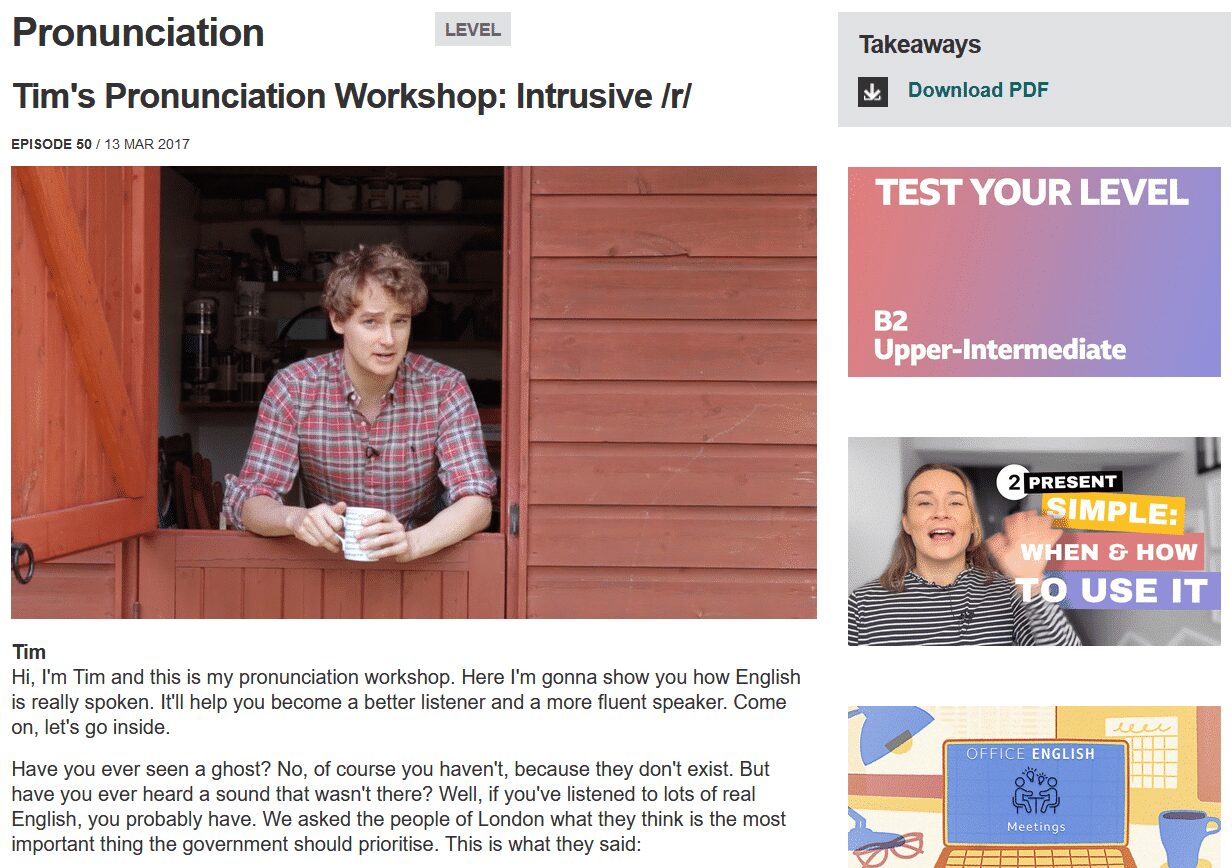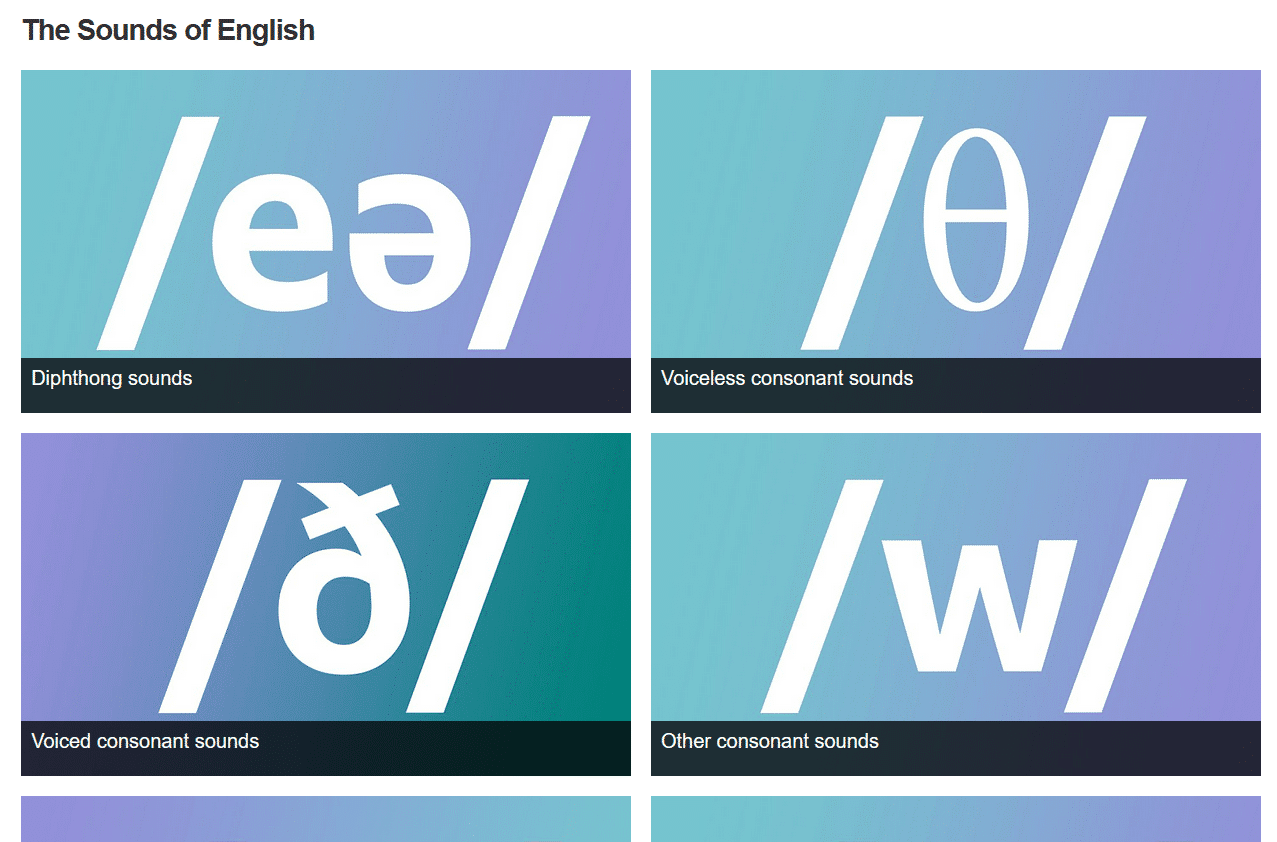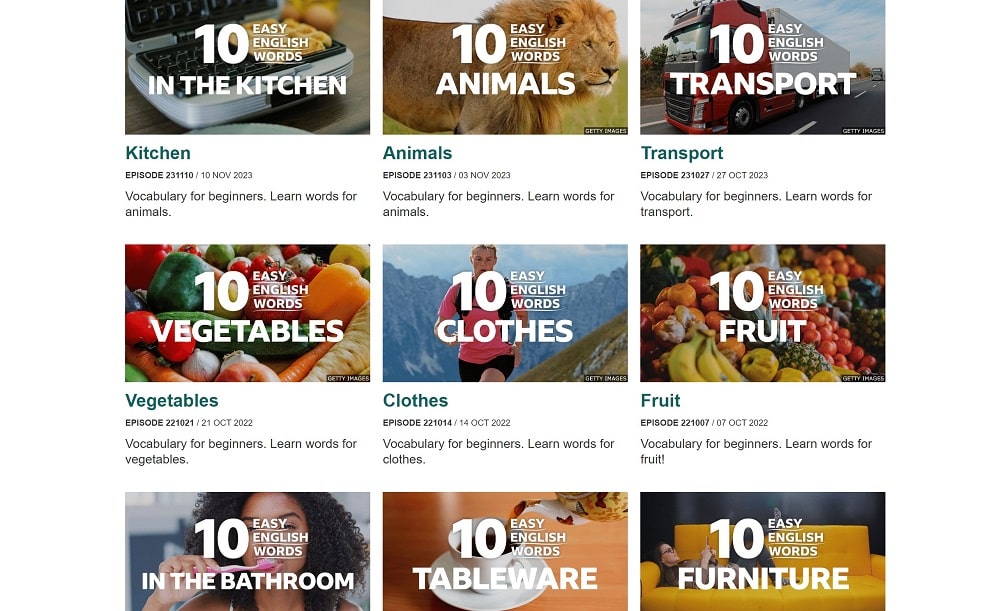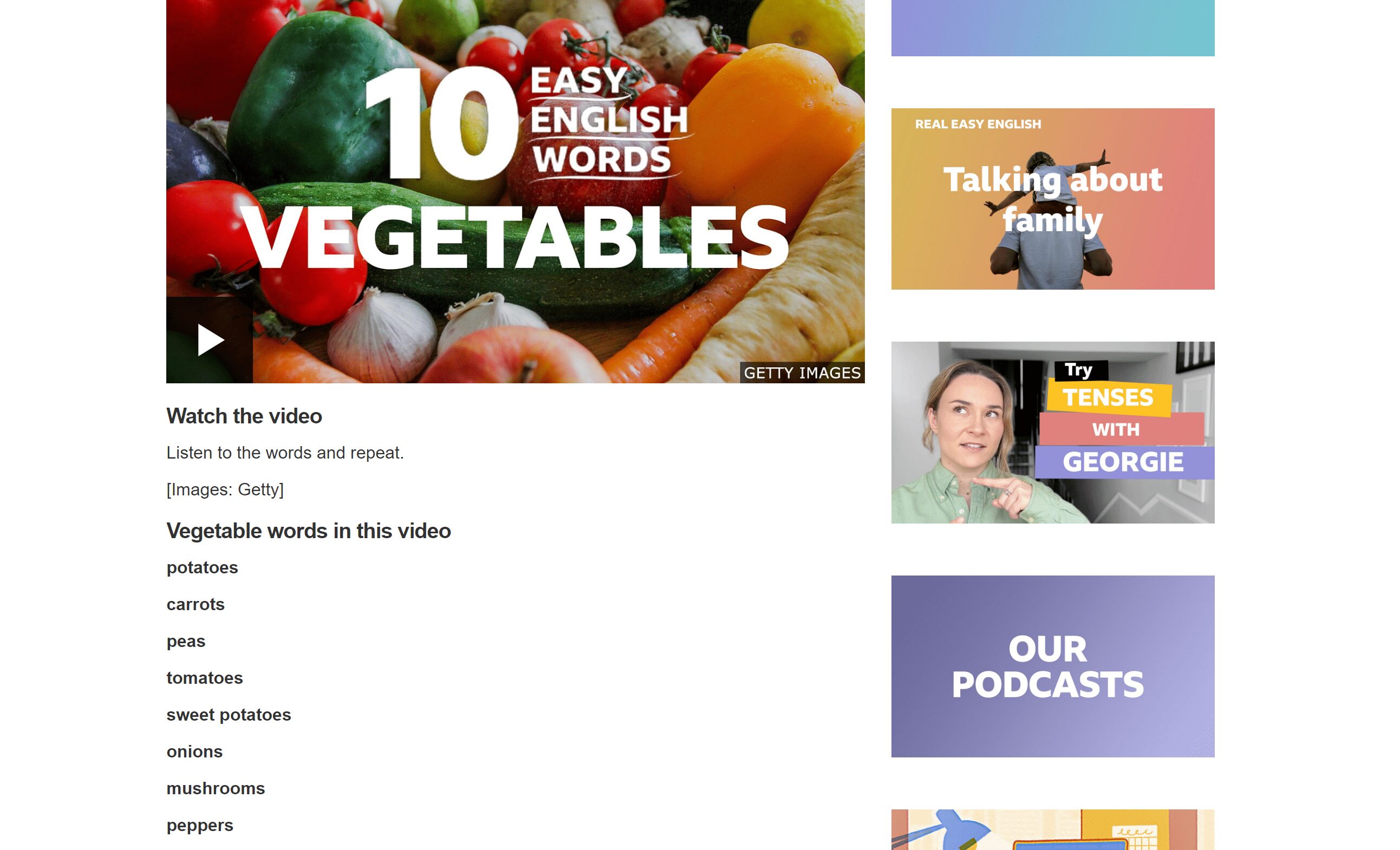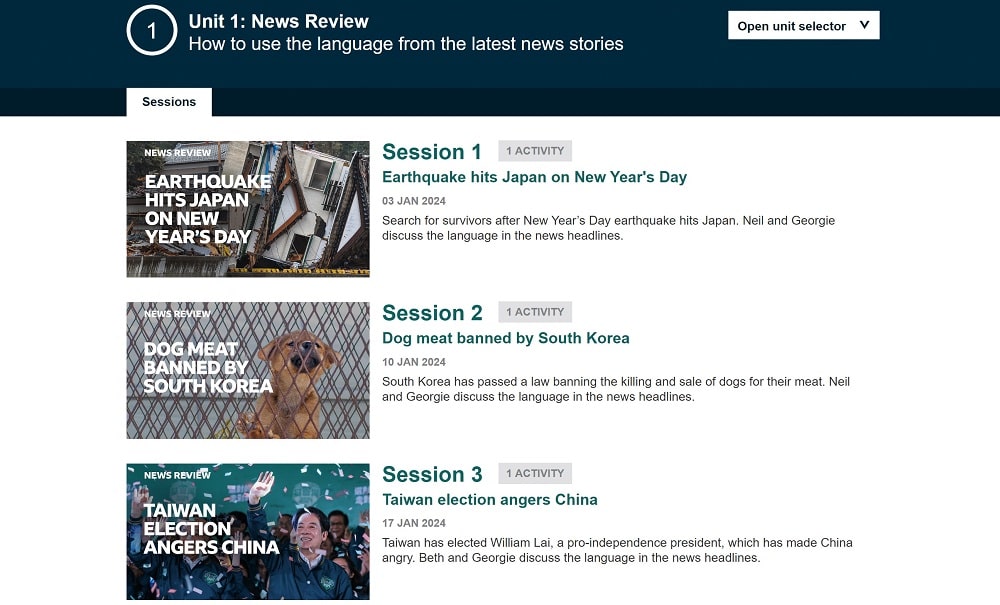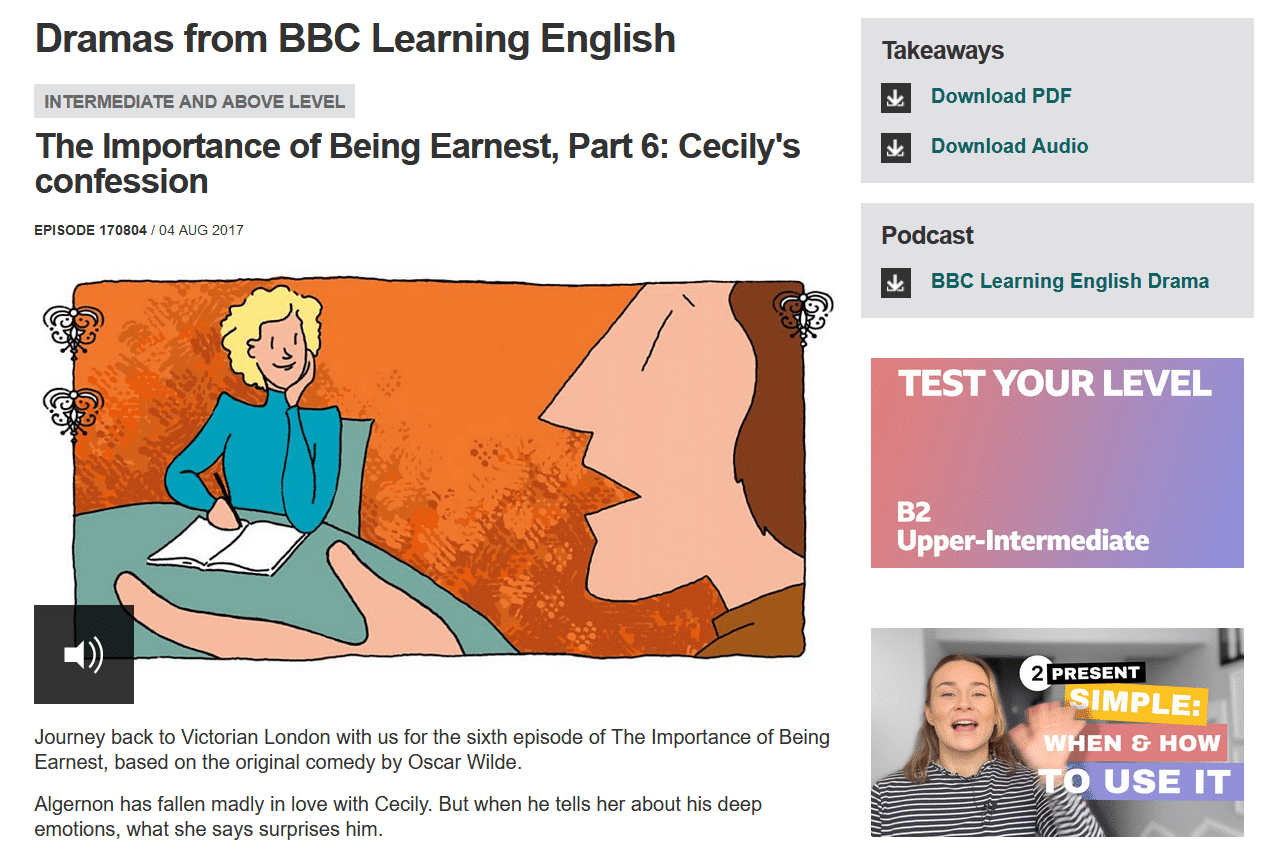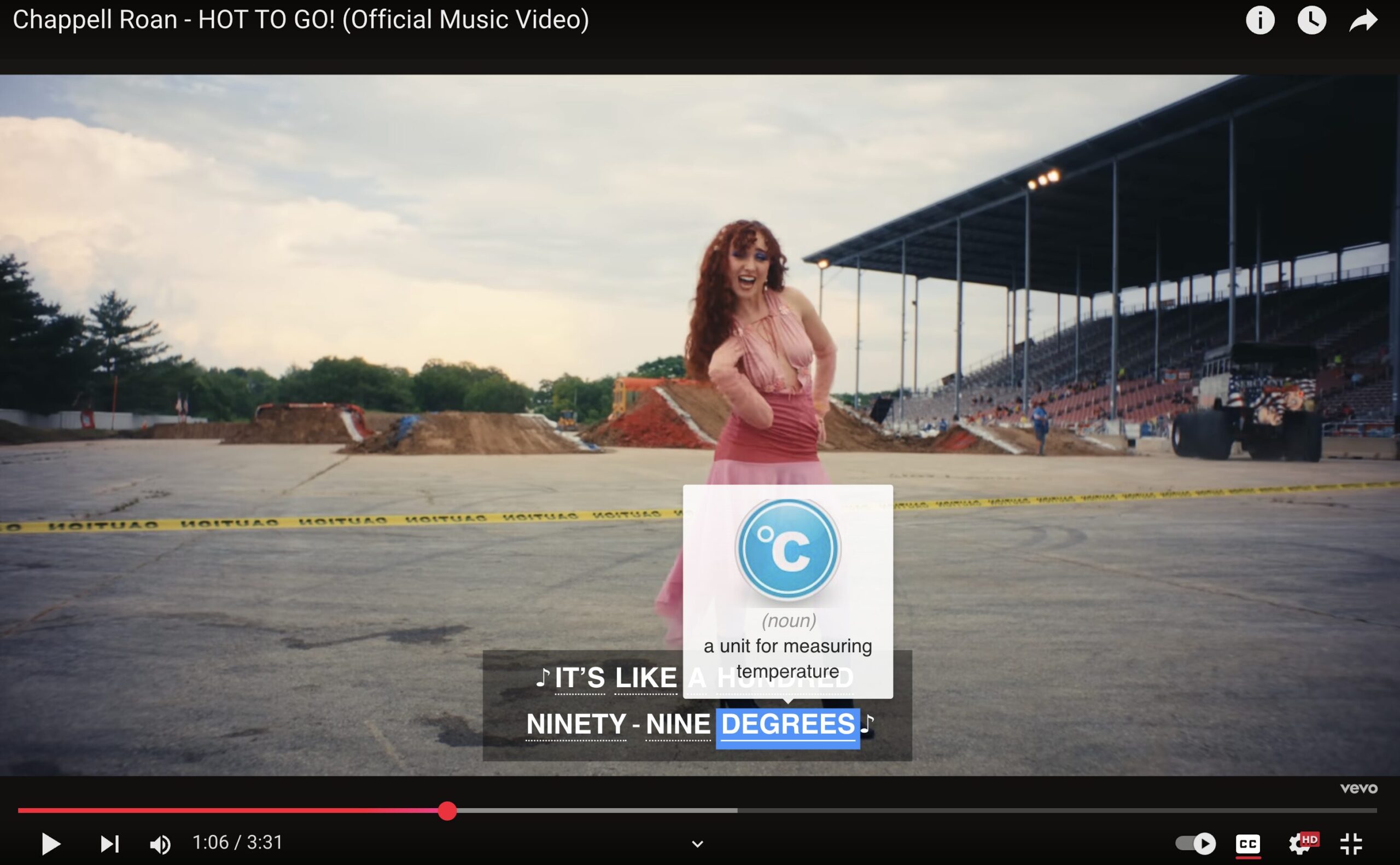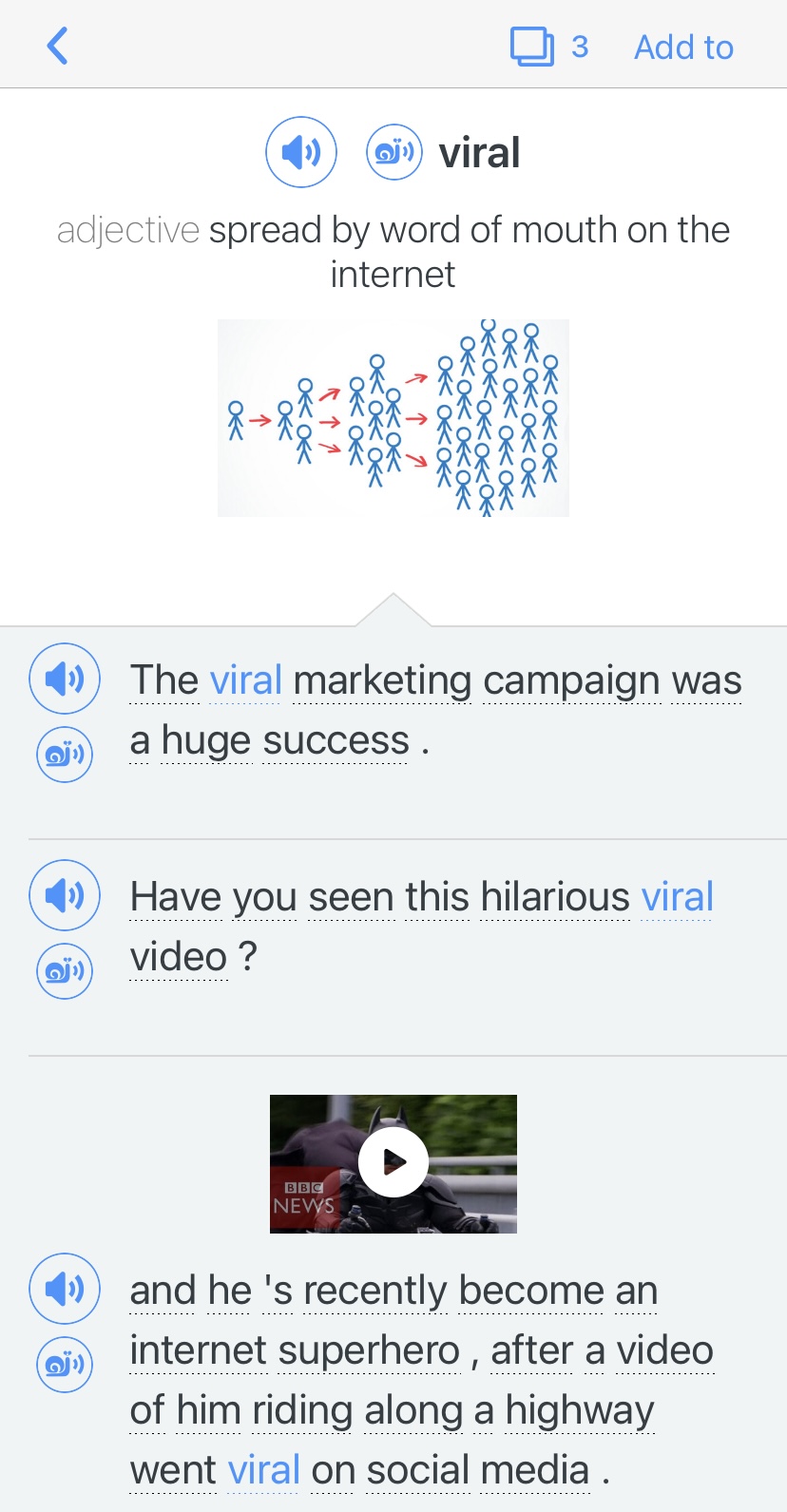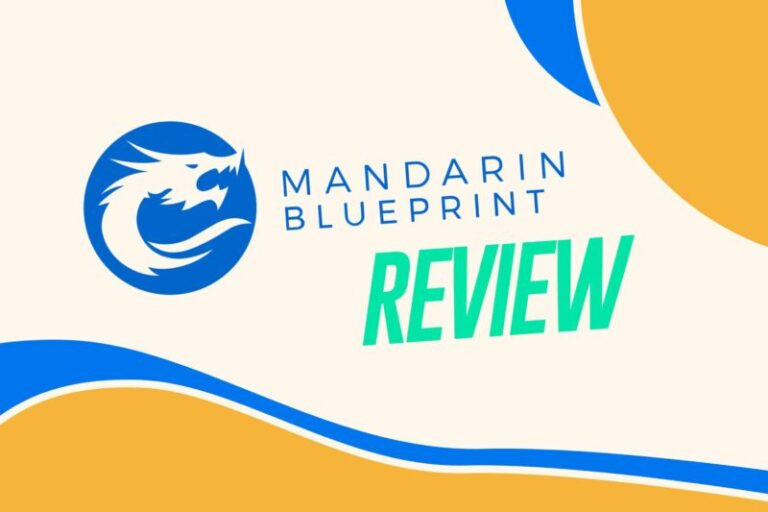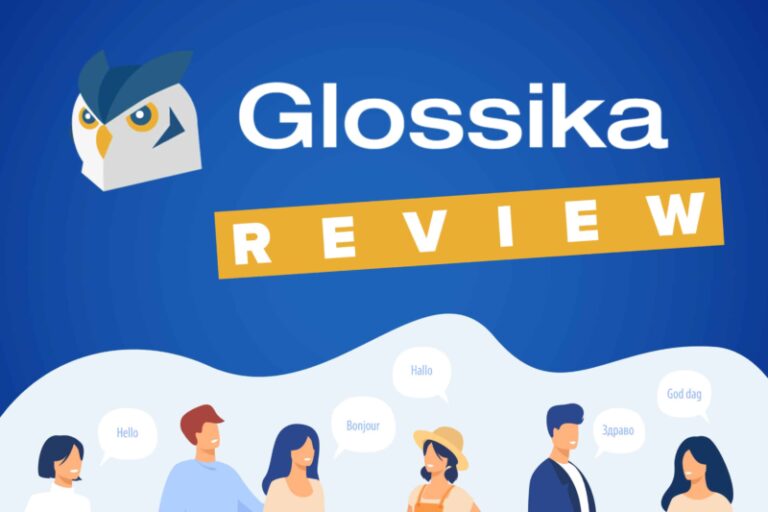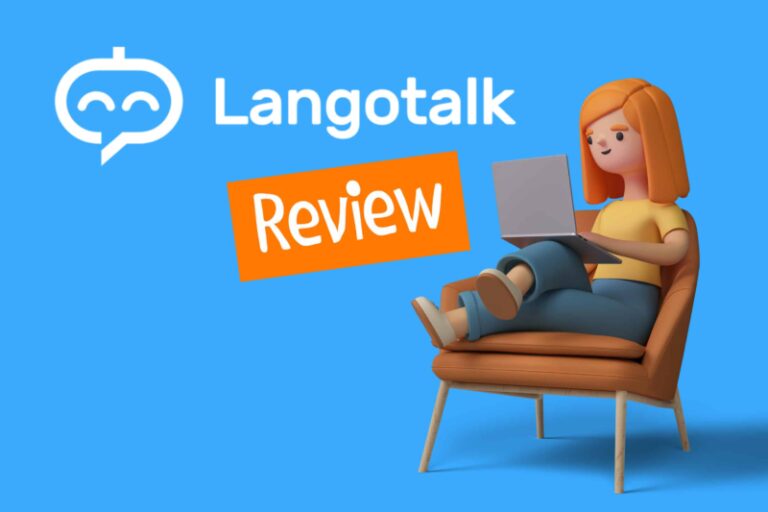Contents
- History of the BBC and BBC Learning English
- A Closer Look at BBC Learning English
- First impressions: So much to do
- Courses: A comprehensive learning program
- Lessons: Interactive learning in bursts
- Grammar: Leaning made surprisingly fun
- Pronunciation: More detailed than most programs
- Vocabulary: Lacking in detail
- News: A way to use real-world English
- Other features: Dramas, podcasts, business English and more
- BBC Learning English Cons
- Final Verdict
- And One More Thing...
BBC Learning English Review: An Excellent, if Disorganized, Collection of Resources
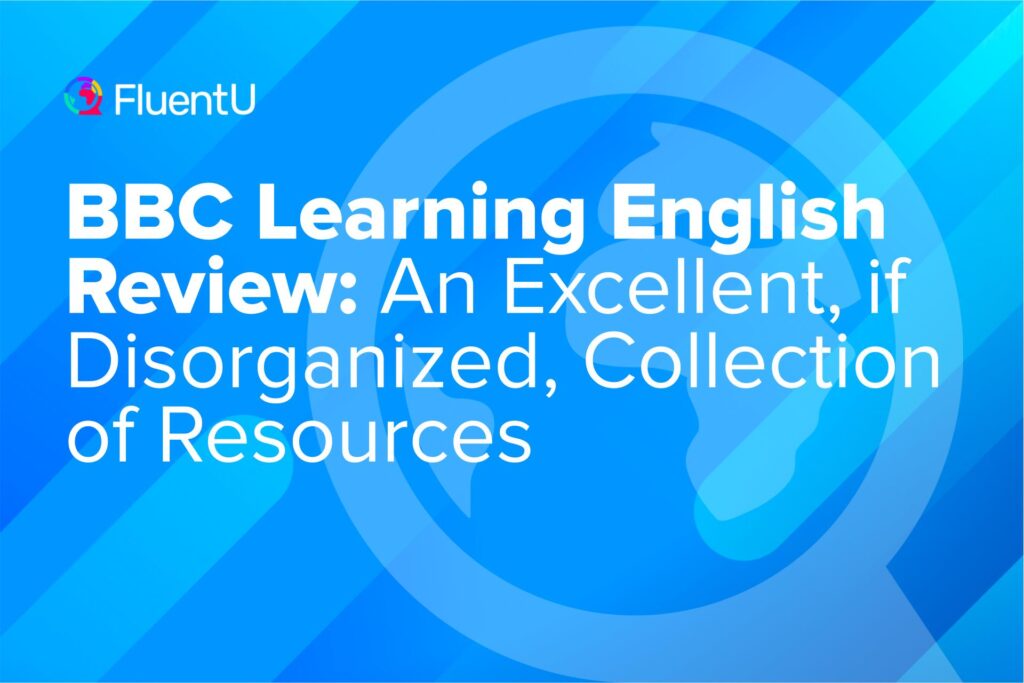
The BBC is known for their British programming, but it’s also a fantastic resource for English language learners. BBC Learning English is a completely free online program for ESL students.
The website contains a huge amount of content for English learners, including courses and lessons on vocabulary, pronunciation, news and so much more. I got hands on with the program’s many resources, and discovered that it’s an amazing tool, as long as you can navigate its often messy organization.
Overview
Name: BBC Learning English
Description: A decades-old program for English learners from the beloved BBC.
Languages offered: English (and 39 other languages).
Offer price: Completely free
Summary
BBC Learning English is a free online program English language learners. The website has a huge amount of excellent content, including courses and lessons on vocabulary, grammar and pronunciation. It also has many ways to consume authentic English, like news articles, podcasts, quizzes, audio dramas and more. The sheer amount of content is overwhelming and it can be difficult to get started here without a plan or goal. Despite this, BBC Learning English is an excellent free resource for learners to consult throughout their studies.
-
User friendliness - 6/106/10
-
Delivers on promises - 10/1010/10
-
Authenticity - 10/1010/10
Pros
- Many different ways to consume authentic English content
- Touches on many areas of English with each lesson (vocab, grammar, culture, etc.)
- Well-designed interactive quizzes
- Surprisingly fun grammar learning program
- Fun extras like audio dramas and podcasts
Cons
- Has some bugs and broken links
- Some sections (like vocabulary) feel under-developed
- Disorganized and overwhelming from the sheer amount of content
- App version has been discontinued
Download: This blog post is available as a convenient and portable PDF that you can take anywhere. Click here to get a copy. (Download)
History of the BBC and BBC Learning English
The British Broadcasting Corporation (BBC) was founded in 1922 and is one of the world’s oldest and largest broadcasting organizations. It’s been hugely influential in shaping British news and bringing news, entertainment and educational programming to the masses in the many years it’s been in operation.
The BBC has expanded its reach beyond Great Britain. In fact, you probably know of it! What you might not know is that the BBC provides free language learning resources in 40 different languages.
One of these, of course, is English.
BBC Learning English was launched as a radio program in 1943 to help people in non-English speaking countries learn English. Since then, it’s evolved to serve a global audience through programs and online language learning materials.
Today, the learning program provides audio and video content, grammar guides, vocabulary exercises and interactive lessons for English language learners.
Is any of it any good? Let’s find out!
A Closer Look at BBC Learning English
First impressions: So much to do
The home page of the BBC Learning English program features a colorful, if somewhat dated design. The program places its hosts and categories front and center, so you’re met with both a simple breakdown of what to expect, and a slightly overwhelming number of options.
Content is divided into categories: language courses, grammar, pronunciation, vocabulary, news… and those are just the featured options. Beyond these, you can also find quizzes, level tests, downloads, a space for ESL teachers, educational content for children, podcasts, business English lessons and even a drama designed to teach the language (more on this later!).
You can connect with the BBC Learning English on social media, including a robust YouTube channel with over six million subscribers. a surprisingly active Facebook and Instagram page and even a TikTok page jam-packed with short learning clips.
Basically, BBC Learning English isn’t so much a learning program as it is a vast collection of articles, activities, lessons and tons of other resources for learners.
Courses: A comprehensive learning program
I decided to start with “Courses,” as I figured this was the most organized way to get started with the program.
Front and center on the courses section of the website is a series of lessons that aims to improve your English in five days. These even have a certificate of completion available, to give you a sense of accomplishment (and bragging rights) once you finish the lessons.
The rest of the content in the “Courses” section is organized by level. I chose “Medium English level,” the “General English 1” course, which seems aimed at intermediate learners.
My first thought was how random the classes seem—the first session is all about hyphens, which isn’t the topic I’d choose to start your intermediate journey on. But looking beyond that first lesson, I discovered that the course features a great variety of topics. It’s also incredibly extensive, with 30 units within the “General English 1” course, each broken down into five lessons.
Each unit loosely centers around a topic (like art or project management) and an element of English (like a specific tense or grammar aspect. The unit’s lessons then teach a mix of grammar, vocabulary, concepts like telling time and commonly misspelled words, dramas, stories and more. Also mixed into these units are cultural lessons like how to deal with a bad colleague, interviews, historical and modern aspects of the English-speaking world and other topics that are both interesting and teach the concept that the unit is focusing on.
I found there to be a great mix of topics covered, with something for everyone in here. I personally prefer to work on programs in the order they were intended to be used, but it’s clear that BBC Learning English can be used in any order. You can jump straight to a topic you’re studying or pick a lesson that sounds interesting to you. It’s a level of flexibility that other programs often lock behind a paywall, and seeing all this information available for free to learners was an unexpected surprise.
Lessons: Interactive learning in bursts
Once you click through to a lesson, there’s a useful unit selector at the top of each page for easy navigation. There’s also a score and lesson breakdown, so you can keep track of how far along you’ve come and your performance in this unit.
However, both the unit selector and score breakdown seem buggy. Sometimes the unit selector works, sometimes it takes me to the same page and other times it’s not clickable at all. I also couldn’t always get the score tracker to actually record my score, even when I signed into my account. The idea and layout are both great, but the execution seems to be lacking, unfortunately. In theory, these simple features are a great addition to the program.
Beyond the unit selector is the actual lesson, and the real meat of the product. Each lesson has a sidebar on the right that shows the grammar and other information being learned in that session. On the left are bite-sized explanations with examples that further break down the information into easy to understand portions.
The lessons I checked out were all broken down into sections that were the perfect length to prevent overwhelm. Lessons are further broken down into sessions, which are even further divided into activities. Topics are explained in very easy-to-understand language that’s often broken down into short paragraphs and bullet points. Some lessons also include audio or video, which are accompanied by a brief description and a transcript.
My favorite aspect of the lessons were the activities, which give you a chance to interact with the language through a variety of methods. The lessons I explored had me filling in the blanks from drop-down options, organizing words into sentences, answering multiple choice questions and more. There’s an excellent variety of activities and they’re the perfect length to make sure you understand the concept.
Best of all, everything is downloadable, so you can take your learning on the go or even print it for easier access.
Grammar: Leaning made surprisingly fun
The “Study Grammar” section of the website is a real gem. It has a wealth of information divided into sections by learning style:
- Learn Grammar by Listening (uses the 6 Minute Grammar program)
- Learn Grammar by Watching (has several video learning series)
- Learn Grammar by Reading (takes you to the written grammar guide for different levels)
But the real highlight is the silly “The Grammar Gameshow.” The best way to introduce this show is with its own description: “Welcome to the Grammar Gameshow! …The presenter is a bit strange, the points don’t make sense and the prizes could use some improvement, but a least the grammar is correct!”
It’s super silly (one prize was a picture of someone on holiday) but contains great information broken down in a fun way. It’s rare for grammar to be “fun” so this is a break from the norm!
My other favorite part of the grammar section is the “Learn Grammar by Reading” section, which is a great grammar resource. It breaks down aspects of grammar into easy to understand explanations, with plenty of examples and chances to practice what you’re learning.
Pronunciation: More detailed than most programs
The Pronunciation section is where you’ll find the delightfully British “Tim’s Pronunciation Workshop.” Tim is a soft-spoken British man who invites you into his cozy workshop, where he shows real examples of spoken English and shows some of the lesser-shown aspects of pronunciation.
For example, in one session, Tim introduces the concept of intrusion, like the way we might add an “r” in “law(r) and order.” These workshops are so laid back and easy to follow, and they’re incredibly useful for any English learners who want to learn how to sound natural beyond the typical pronunciation and speaking instruction.
Tim also runs the “Five Days to Improve Your Pronunciation” workshop, which is a series of five lessons that include a challenge (like learning about the different sounds in English), a tip and some homework, usually in the form of a downloadable exercise worksheet.
Besides Tim’s treasure trove of information, the Pronunciation section of the BBC Learning English website contains a breakdown of all the types of sounds in English, from voiced and voiceless consonants to diphthongs and the rest.
For each sound, you can see a front view and a closeup of a side view of a teacher making the sound. The instructor also takes you through how to physically make the sound, including the position and shape of your tongue.
Vocabulary: Lacking in detail
The vocabulary section of the program has the words sectioned off by difficulty level. There’s a nice variety of themes, including mental health, current events and trending terms, idioms that speakers actually use in everyday conversations, a “10 easy words” series, “English in a minute” which tells you all about one word over the course of a minute and more.
Each vocab learning page is accompanied by a written explanation, videos and an occasional practice activity. The video for each section has the word said out loud and an example sentence, but the written portion only has the words in isolation, without a definition, pronunciation guide or example sentence, making the whole experience less useful than it could be.
While BBC Learning English falters in areas like this, it’s easy to work with it alongside other programs that excel in the same areas. For vocabulary and more authentic English learning, the FluentU program is one great option.
FluentU takes authentic videos—like music videos, movie trailers, news and inspiring talks—and turns them into personalized language learning lessons.
You can try FluentU for free for 2 weeks. Check out the website or download the iOS app or Android app.
P.S. Click here to take advantage of our current sale! (Expires at the end of this month.)

News: A way to use real-world English
The news section of the website allows you to learn English from current events and news headlines. Besides current news, the News section also has a lot of archived content.
There are also some other interesting ways to learn, including “Fake News: Fact and Fiction,” which shows English learners how to be good news consumers and how to tell the difference between fake or biased news and the truth.
This section also has the archived Lingohack, which presented learner-friendly news segments. Each segment has a news video clip, a glossary of difficult vocabulary, a transcript and a guided question to help focus your listening and reading (the question is then answered at the end of the article).
Other features: Dramas, podcasts, business English and more
BBC Learning English has some more cool features worth mentioning:
- Dramas: These are fully voice-acted audio retellings of classic titles like “Alice in Wonderland” by Lewis Carroll, “Gulliver’s Travels” by Jonathan Swift and “The Importance of Being Earnest” by Oscar Wilde. Dramas are split into sections, each with a full transcript and a glossary of potentially difficult vocabulary. You can also download the PDF and audio, or listen to the drama in podcast form.
- Podcasts: I keep going back to these, because everywhere you go on the website, BBC Learning English keeps directing you to use the podcast. There are several pods to listen to. In fact, most of the content on the website can be consumed in podcast form if that’s your jam. All are available for download, but you can also listen on the website or find it on Apple and Spotify.
- Business English: The lessons in this section are more advanced, and don’t dumb themselves down, while still being approachable for learners. I especially like the “Leadership” series, which covers interesting people like Kamala Harris and Tim Spector, and topics like artificial intelligence in leadership.
I think learners can find their niche here. You might binge Tim’s Workshop episodes, listen to the podcast or use the grammar instruction to bolster your existing learning program. There’s a lot of content on this website—so much that it’s not structured well enough to be used from start to fluency. So, come here throughout your learning journey for a helping hand.
BBC Learning English Cons
Needs better organization
When I first loaded the website, I had no idea where to start. There’s so much information on the site, and I wish there was some more guidance, or a plan to follow.
There were a couple of other issues with the organization, like the choice to make the final class of each “X in 5 days” course the largest and most prominent option on the course’s page. This led to some confusion when I naturally clicked on the first and biggest lesson and thought that the first lesson of how to make small talk is what not to talk about.
Broken links and bugs
There are also a couple of broken links, which isn’t too surprising considering there’s a lot of content here, but it did cause a handful of issues. For instance, I couldn’t get to the older quizzes, as the link was broken no matter where I accessed it from.
This is combined with the aforementioned bugs, like the unit selector and several other features not always working like they’re supposed to (or at all).
No longer has an app version
There is no app version of the BBC Learning English… anymore. The app ran from 2018 until December 2023, when it shut down and was removed from the app stores.
Even though there are no apps for this program, the BBC is constantly updating their website offerings. You can see what the BBC has planned for the future on this page.
Final Verdict
So is BBC Learning English good? I’d say it’s definitely worth your time!
It’s an excellent resource for learners, especially upper beginner and intermediate learners.
If you’re easily overwhelmed by choice, you may struggle to navigate this program. But if you don’t mind stumbling around for a bit or focusing on specific areas of learning, BBC Learning English is definitely an amazing resource.
Plus, it’s completely free—so you really have nothing to lose.
Dive into BBC Learning English and you’ll be making use of decades of learning content.
And One More Thing...
If you're like me and enjoy learning English through movies and other media, you should check out FluentU. With FluentU, you can turn any subtitled content on YouTube or Netflix into an engaging language lesson.
I also love that FluentU has a huge library of videos picked specifically for English learners. No more searching for good content—it's all in one place!

One of my favorite features is the interactive captions. You can tap on any word to see an image, definition, and examples, which makes it so much easier to understand and remember.
And if you're worried about forgetting new words, FluentU has you covered. You'll complete fun exercises to reinforce vocabulary and be reminded when it’s time to review, so you actually retain what you’ve learned.
You can use FluentU on your computer or tablet, or download the app from the App Store or Google Play. Click here to take advantage of our current sale! (Expires at the end of this month.)
